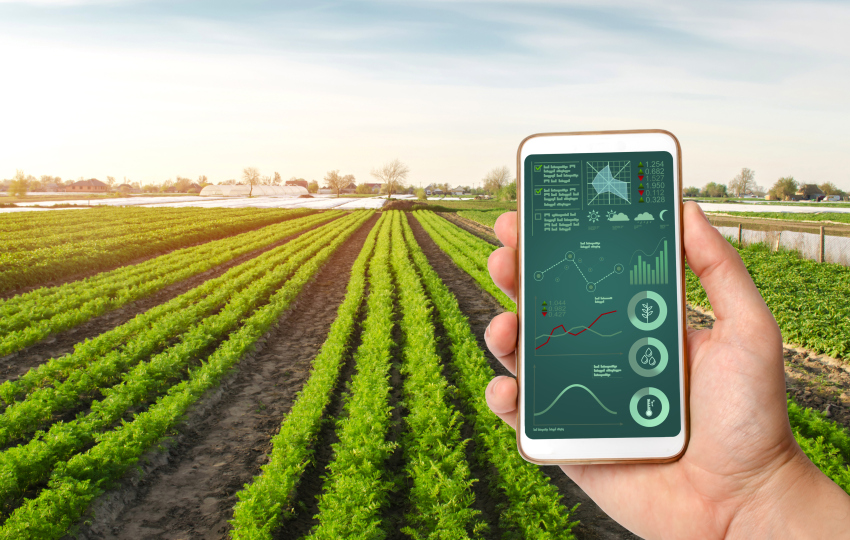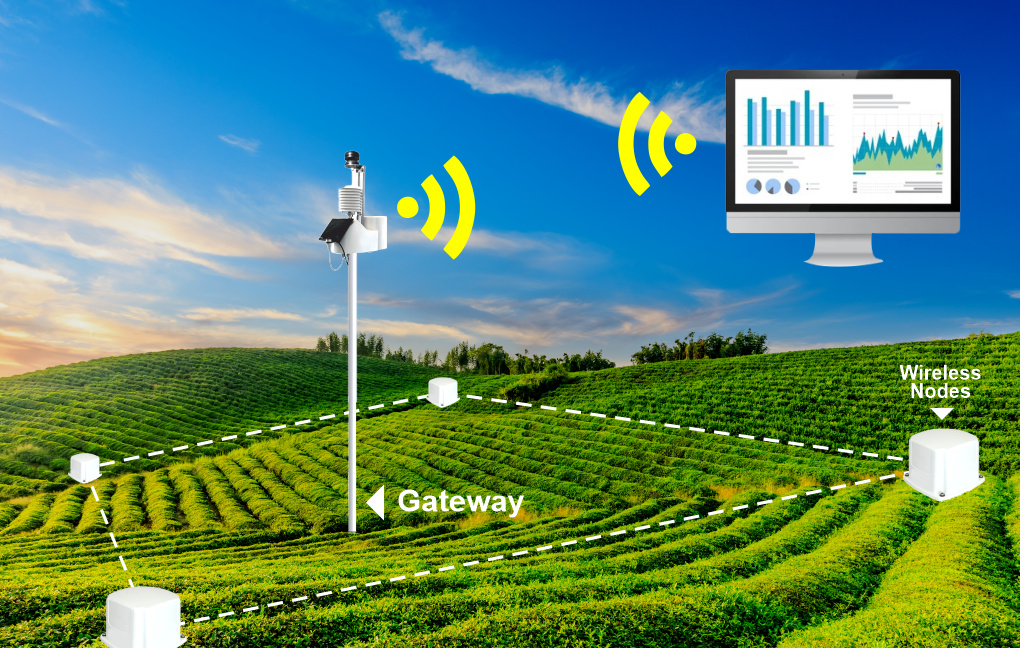
Automatic Irrigation systems using IoT have the highest benefit to India as we stand out as a major agricultural producer globally and have among the highest water consumption rates worldwide. The unrestricted application of ineffective irrigation strategies has created an extreme water deficiency in the country. As a result, IoT Precision Farming and Precision Irrigation have become increasingly popular. A cost-efficient Automated Irrigation System anchored on LoRa technology, can significantly benefit small farmers for whom farming is a livelihood stemming from water shortages.
About 70% of freshwater resources & 60% of the water diverted or pumped for irrigation is wasted. Due to the global energy crisis and water scarcity, our agriculture industry is being improved with the aim of producing more with the smallest amount of water possible. Water-efficient irrigation systems are being used to protect the sustainability of modern agricultural practices and improve water-use efficiency.
The benefits of cellular technology offer a strong opportunity for telecom operators to support energy providers to deploy smart solutions. Telecom operators can provide an array of key services such as connectivity to more sophisticated customer interfaces and delivering messages to subscribers.
In large farms, there are often complex watering systems and watering operations that are not working as efficiently as they could be. Hence farmers always want some Smart Solution to minimize the wastage & maximize the efficiency of available water resources. Let’s see how can we adopt Smart agriculture and irrigation solutions
Challenge Before Automatic Irrigation System Using IoT
- Control gates and valve openings are manually operated, resulting in labor, vehicle, and power costs, along with high application rates over or underwater.
- High cost of electricity & fuel
- Irrigation times are determined by monitoring plants in person.
Solution With Automatic Irrigation System Using Lorawan
MACNMAN’s Wireless LoRaWAN® sensor networks in precision farming utilize natural resources more efficiently by collecting real-time data in the field to assist agriculture farmers to make reasonable decisions. Using this IoT in agriculture, farmers can effectively use the information to achieve greater yields and earn higher profits. This blog presents an alternative to existing monitoring methods in the farmlands whilst providing an irrigation mechanism to help in resource conservation efforts by the use of wireless LoRaWAN® sensors, gateway and controllers.
All of the problems associated with conventional irrigation can be resolved with an automated irrigation system. Water is regulated by sensing soil quality and moisture and providing adequate moisture by using motor pumps. An automatic irrigation system using IoT here transfers data to a network without much human interaction.
Farmers always want to improve water-use efficiency and minimize water losses. In large-sized farms, there are complex watering systems and watering operations that may often not be working as efficiently as expected. In this automated system, LoRa technology is used in Sensor and Irrigation nodes, where sensors collect data on soil moisture and temperature and send it to the server through a LoRaWAN gateway. The sensor used in the system is MACNMAN’s LoRaWAN based Water level sensors LoRaWAN-based Soil pH sensor LoRaWAN based Temperature and humidity sensor.
It is possible for farmers to accurately record rainfall and other weather conditions, set flood risk alarms and other alerts in the event of changes in water quality or overuse of phytosanitary products.
Traditionally, farm managers have been using their experience and schedule to decide when and how much to water their crops, resulting in inefficient water usage and a decline in crop yield and quality. Precision irrigation using an automated irrigation system is the modern solution that enables growers to apply just enough water to the crop, at varied rates and durations as needed, preventing plant water stress during critical growth stages. Implementing precision farming will bring significant benefits for farmers, such as lower costs of irrigation water and labor input, as well as improved crop yield and quality. In order for precision irrigation to be implemented on agricultural crops, integrated sensors, decision-making strategies, and control systems, smart irrigation solutions need to be developed in order to precisely control the timing, rate and distribution of water when necessary.
Sensor networks that are either wired or wireless are essential for precise and automatic irrigation systems. IoT, which is the amalgamation of connected sensors and machines to capture, share, manage and analyze data, can be employed. The data is first sent wirelessly from the sensors to a web server. This data can then be accessed on the internet for inspection and calculation. Afterwards, instructions are sent over the air from the web server to actuators in the field for actionable tasks. The Lora monitoring system works effectively to give precise results to the farmers.
A variety of wireless technologies have been studied for precision farming or crop irrigation management such as Wi-Fi, cellular networks like GPRS or LTE, and LoRaWAN. Their performances showed that while Wi-Fi was effective in vegetable fields near the gateway, its coverage was poor. Conversely, GPRS had long distance communication but consumed lots of power and could be expensive regarding maintenance costs and deployment charges. Lora monitoring system however was found most useful with its 10km maximum range potential as well as low levels of power consumption and cost which allows small farms to use it for accurate irrigation purposes at an affordable expense.

Benefits of Automated Irrigation System
- Manpower reduction, labour effectiveness, and efficiency gains;
- Improvement of water-use efficiency;
- Productivity enhancement;
- Lowered operating costs;
- Most importantly, increase profitability
Conclusion
It has been proven that precision farming with sensors saves water in crop production. In order to monitor real-time sensor data and automate irrigation systems, an Internet of Things (IoT) system is necessary. An IoT system for precision crop farming, LoRaWAN is a low-cost, easily implemented, low-power wide-area network (LPWAN).
The MACNMAN’s LoRaWAN-based automated irrigation system performs well in terms of power consumption, communication, sensor reading, and valve control. Based on these research & tests it was found that the IoT system can be used to optimize vegetable and other horticultural crop water use efficiency and sustainability by implementing precision and automatic farming operations. Macnman Lorawan Solution for an automated irrigation system is the need of the hour today.